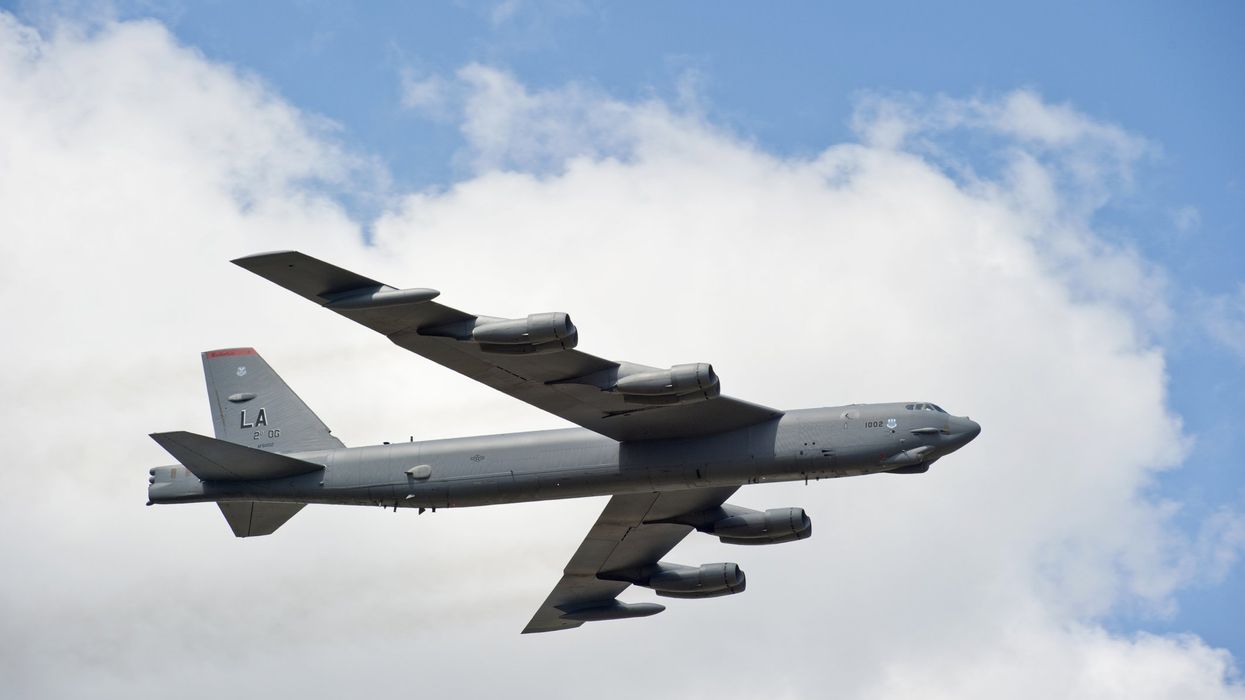Christians in a northern Iraqi city are reportedly being ordered to pay a tax in return for protection by the Islamic State of Iraq and Syria.
A Middle Eastern Christian website and a Lebanese daily reported that Christians have been required to pay $250 per individual who works and $500 per couple. If accurate, the tax would fall in line with past Islamist efforts to impose fines on Christians in the region, a Middle East expert told TheBlaze.
 In this Sunday, June 15, 2014 photo, Iraqis attend Mass at the Chaldean Church of the Virgin Mary of the Harvest, in al-Qoush, set in the seventh century Saint Hormoz monastery built into a hill overlooking Alqosh, a village of some 6,000 inhabitants about 31 miles north of Mosul, northern Iraq. Dozens of Christian families that fled to this ancient Iraqi village have taken a much-traversed route -- many from their minority community have escaped to Alqosh before, in fear for their lives. (AP Photo)
In this Sunday, June 15, 2014 photo, Iraqis attend Mass at the Chaldean Church of the Virgin Mary of the Harvest, in al-Qoush, set in the seventh century Saint Hormoz monastery built into a hill overlooking Alqosh, a village of some 6,000 inhabitants about 31 miles north of Mosul, northern Iraq. Dozens of Christian families that fled to this ancient Iraqi village have taken a much-traversed route -- many from their minority community have escaped to Alqosh before, in fear for their lives. (AP Photo)
Council of High Commission for Human Rights in Iraq member Salama Al-Khafaji told the Arabic-language Alsumaria News that ISIS had begun imposing the tax, known as “jizya,” on Christians who remained in Mosul after the militant group seized the city earlier this month. The Assyrian International News Agency summarized the report on its English-language website.
Al-Khafaji said ISIS "is imposing on Christians a minimum payment of $250, with amount varying depending on the type of work/profession performed by Christian citizens."
"The economic situation in Mosul is extremely difficult, and there are no financial resources or job opportunities except for vegetable shops, any other businesses are non-existent. Citizens are at a loss now as to how to make ends meet; how can they pay those amounts to ISIS?" Al-Khafaji asked.
The Lebanese newspaper An-Nahar reported Tuesday that Christian families in Mosul had received telephone calls informing them of the protection tax. The paper quoted a Chaldean Catholic church leader who said Christians were told to either pay the tax or leave the city.
At least half of Iraq’s Christian population has fled the country since the U.S.-led invasion in 2003, according to the Associated Press, and remaining Christians now are “emptying out” to escape the prospect of living under strict Shariah law, the stated goal of the Sunni Muslim militants.
Earlier this year, Christians in the Syrian city of Raqqa were told to pay a protection tax in gold after the city was seized by ISIS, under a concept that dates back to the seventh century treatment of non-Muslims under a caliphate. The Al Qaeda splinter group said it would protect the Christians in exchange for the payment and limitations on public displays of Christianity.
Aymenn Jawad Al-Tamimi, a fellow at the U.S.-based Middle East Forum who researches militant groups operating in Iraq, Syria and elsewhere, told TheBlaze on Wednesday that while there is no definitive proof of a formal ISIS jizya edict in Mosul, “if you check the 'city charter' ISIS issued for Mosul, it is quite clear they intend to exert sole power and in broad outline are seeking to make it Iraq's version of Raqqa [in Syria]” where Christians have faced limitations on the practicing of their faith.
“Even before the fall of Mosul, ISIS and its predecessor ISI [the Islamic State in Iraq] were informally imposing jizya for years in Nineveh province, so no surprise if it is true,” Al-Tamimi said. Mosul is the capital of Iraq’s Nineveh province.

 In this Sunday, June 15, 2014 photo, Iraqis attend Mass at the Chaldean Church of the Virgin Mary of the Harvest, in al-Qoush, set in the seventh century Saint Hormoz monastery built into a hill overlooking Alqosh, a village of some 6,000 inhabitants about 31 miles north of Mosul, northern Iraq. Dozens of Christian families that fled to this ancient Iraqi village have taken a much-traversed route -- many from their minority community have escaped to Alqosh before, in fear for their lives. (AP Photo)
In this Sunday, June 15, 2014 photo, Iraqis attend Mass at the Chaldean Church of the Virgin Mary of the Harvest, in al-Qoush, set in the seventh century Saint Hormoz monastery built into a hill overlooking Alqosh, a village of some 6,000 inhabitants about 31 miles north of Mosul, northern Iraq. Dozens of Christian families that fled to this ancient Iraqi village have taken a much-traversed route -- many from their minority community have escaped to Alqosh before, in fear for their lives. (AP Photo)


